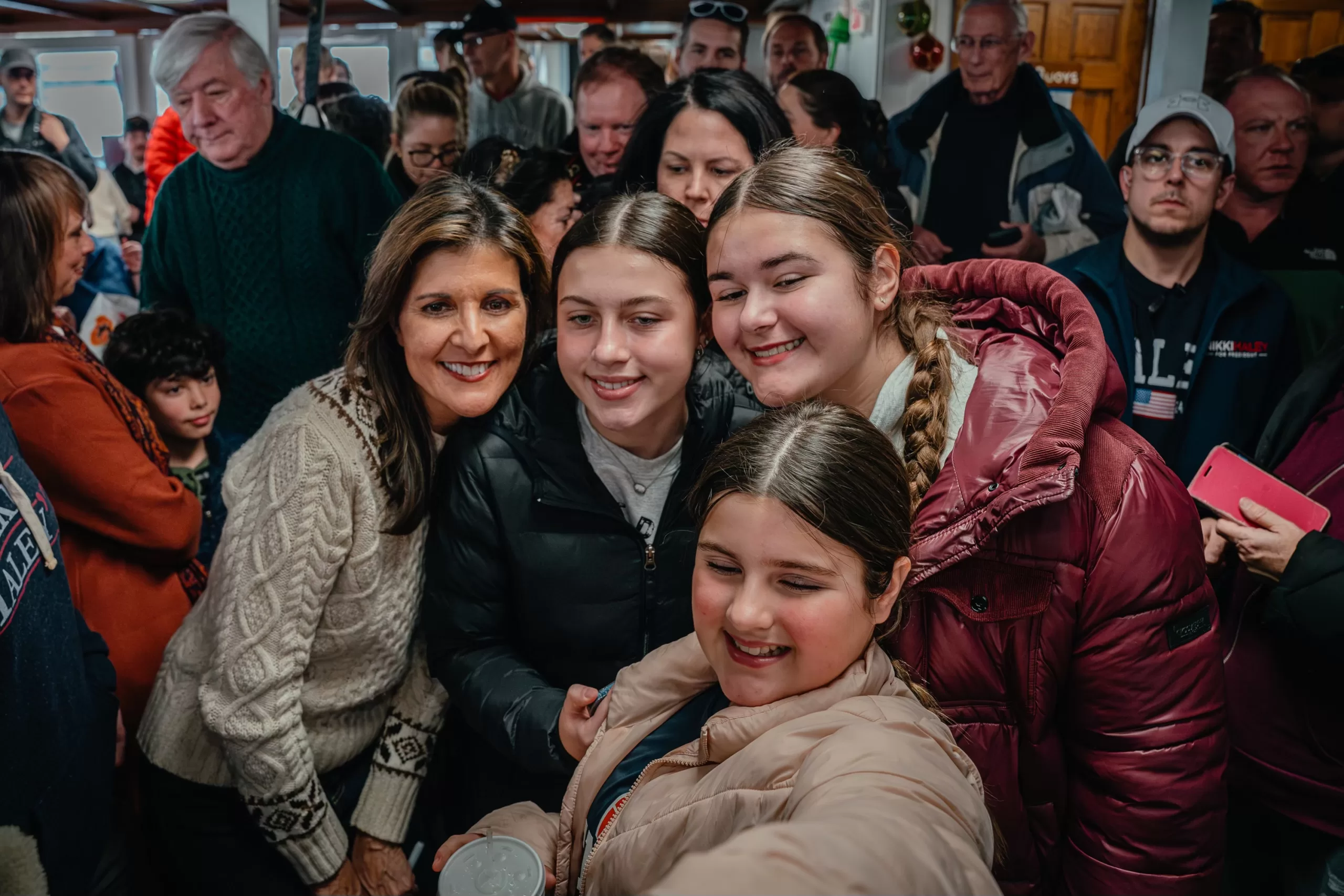
Haley herself, despite talking about her heels, or being a mother to her now-adult children, or knowing how to discuss controversial issues better than “the fellas,” has repeatedly said she resists identity politics.
“To be honest, I think other people think about it a lot more than we do,” Ankney said.
As Haley campaigned across the state here this week, voters largely said in interviews that her gender was not the most important reason they were behind her.
But it is a compelling reason for some, even if they sensed it wouldn’t be enough. A day after Trump seemed to confuse Haley with former House Speaker Nancy Pelosi, saying Haley was in charge of Capitol security on Jan. 6, 2021, Kori Garnhart, a 19-year-old student at Franklin Pierce, sat listening to Haley at a rally at her university.
She said she was drawn to Haley in part because it was empowering to see a female candidate and inspiring to witness the possibility of a woman president.
But she recognized she isn’t necessarily in the majority.
Even if it is “a plus” today for her generation, she said, in today’s politics, “some people might see it as a bad thing.”
Or just not motivating enough to draw them away from Trump.
“I just feel like so many of the older Americans are still not ready,” said Lisa Tracy, a voter from Salem. “And it’s ridiculous.”
